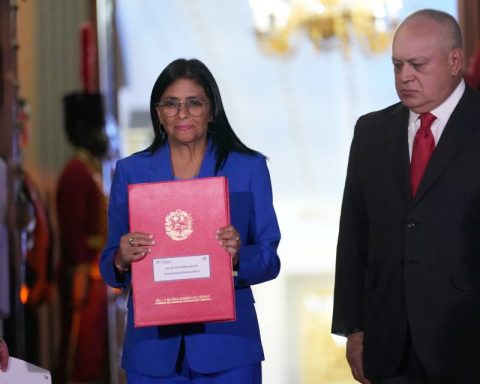When the poet Antonio Cisneros (Lima, 1942) was asked what purpose he had writing poetry, this was his answer: «Its function is probably to redeem the person who writes it from madness. It is a way of knowing and assuming things”. Cisneros assumed them from irony, criticism of history, questioning the solemnity and colloquiality of his language, characteristics that knew how to invigorate a work fertile in transtextual references and an avant-garde technique with a decisive English influence.
Last year, Lumen published his “Complete Poetry” under the edition of the poet José Carlos Yrigoyen. It is difficult to propose new ways of reading about Cisneros when, from the academy and the press, he has studied it in such detail. And therein lies one of the successes of this meeting of his work: Yrigoyen, in the prologue, presents us not only with a panorama but with lights to discover new possibilities of readings and interpretations. He puts each book in its context, identifies the reasons for their recognition, underlines poems disdained by the official discourse and questions some particularities of Cisneros’s poetry, such as his remarkable irony, his social commitment or the metamorphosed fauna that walks among his books. verses.
LOOK AT THIS: Marco Martos: “My life was transformed by the death of Javier Heraud”
He published 13 poetry books, among which are “Comentarios Reales de Antonio Cisneros” (National Poetry Award 1964); “Ceremonial song against an anteater” (Casa de las Américas Award, 1968) and “Like a fig tree on a golf course” (1972). It is in these texts where his poetics, his universe and his voice are summarized. Lines loaded with hidden anecdotes, popular language and long verses, heir to Eliot and Pound. There is also his influence from English poetry and the confessional mode that his compositions adopt, but not as the protagonist subject, but as a referential one, around whom the things that matter happen. The critic Antonio Cornejo Polar highlights a characteristic that encompasses the aforementioned: Cisneros, a disciple of Euguren, flees from poetry to seek inspiration away from the “individuality of the creator”, settling on an objectivist poetry.
In particular, I believe that the value of returning to a work like that of this great master is to reflect on his disagreement with reality. Camilo Fernández Cosman has called this way of dethroning the great figures or phenomena of reality “demystifying irony” in order to reveal, scathingly, their real value. He makes fun of liberators with “big sideburns on their faces” who don’t need to move from their palaces of command, while “Others, without so much luck, have occupied / two pages of text / with the four horses and their death.”
LOOK AT THIS: The return of Catalina Huanca, criticism of the novel “A place under the sun” by Alberto Chavarría Muñoz
As Conejo Polar points out, Cisneros’s work “reveals and clarifies the meaning of the real world and the processes that constitute it.” And this is an opportunity to revisit those new doors to reality that the poet opened for us.


















